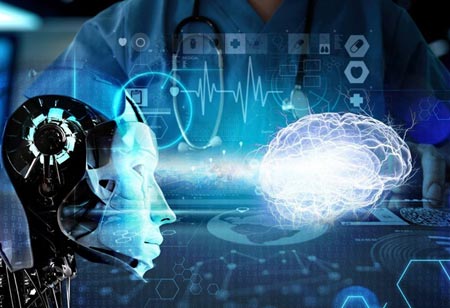THANK YOU FOR SUBSCRIBING
How Cognitive Computing Transforms Healthcare?
Cognitive computing, in conjunction with NLP (Natural Language Processing) frameworks, data mining, and machine learning advances, expands clinicians' expertise in planning tailored care modules.

By
Apac CIOOutlook | Wednesday, April 14, 2021
Stay ahead of the industry with exclusive feature stories on the top companies, expert insights and the latest news delivered straight to your inbox. Subscribe today.
Cognitive computing, in conjunction with NLP (Natural Language Processing) frameworks, data mining, and machine learning advances, expands clinicians' expertise in planning tailored care modules.
Fremont, CA: In the healthcare sector, technical advances have allowed physicians and other human service providers to better identify and treat their patients. With the use of EHRs, voice recognition technology, and other technological developments in recent years, the healthcare industry has seen several technological advancements that have enhanced the work processes of each healthcare unit. Like other healthcare organizations, medical transcription companies are harnessing the power of cutting-edge technology to ensure accurate and timely documentation. The main focus is on increasing consistency while reducing documentation time. Transcription, transport, workflow, distribution, and secure storage of clinical records can all be done without a problem, thanks to cutting-edge technology, facilitating continuous workflow.
Cognitive engineering is the most recent advancement in the area of healthcare. It's a self-learning platform that employs data mining techniques, pattern recognition, natural language, human senses processing, and device refinements focused on real-time data protection. Cognitive computing is transforming healthcare delivery worldwide, and these systems use automated models to replicate human perspectives.
These computer systems have been instrumental in detangling the immense amount of healthcare data on a global scale. In conjunction with NLP (Natural Language Processing) frameworks, data mining, and machine learning advances, cognitive computing expands clinicians' expertise in planning tailored care modules. Patient interest and access to healthcare facilities have also increased as a result of it.
Companies may assess which patients are at a higher risk of developing a particular disease or disorder. Effects after discharge can be tracked, and the number of readmissions can be reduced significantly. Diagnoses can be faster because computers and machine learning systems are good at comprehending and perceiving patterns, which is essential in diagnostics, and patients will be able to understand what they are feeling and what action they need to take next.
See also: Top Healthcare Startups





